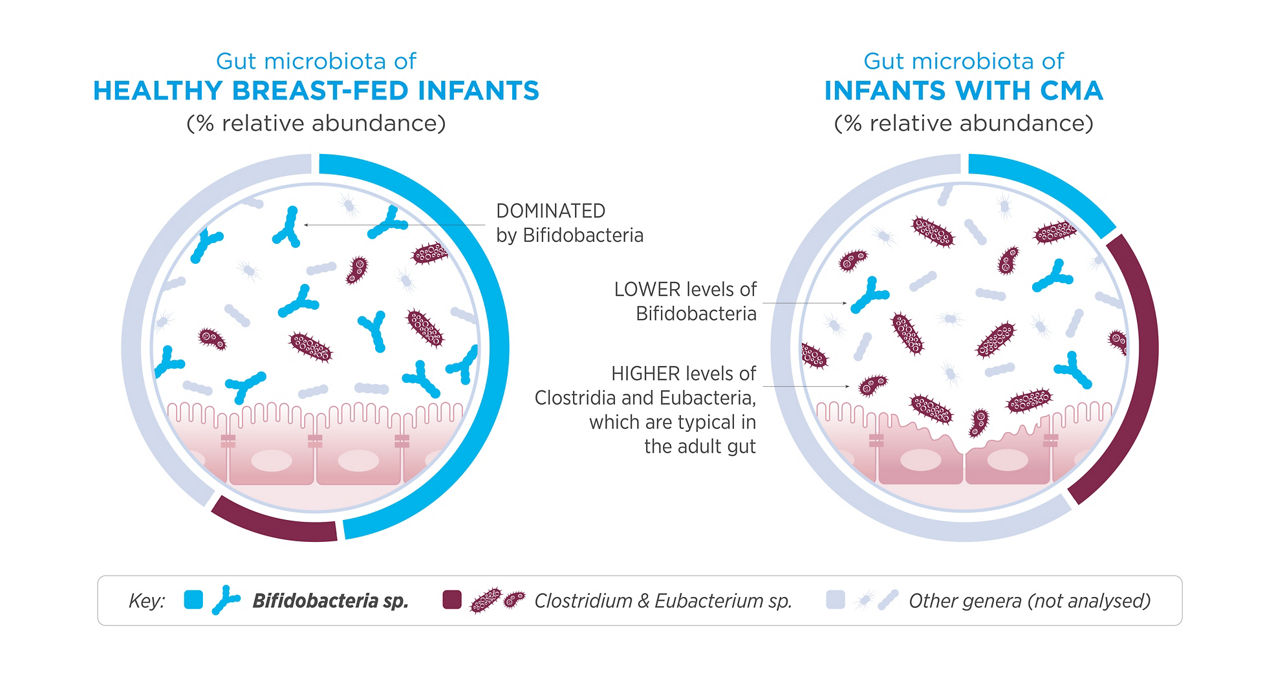Prebiotics, Probiotics and Synbiotics in Cow’s Milk Allergy (CMA) Management

A food allergy is an abnormal immune response to a normally harmless food protein, such as cow’s milk protein.
The immune system develops quickly during the first 1000 days of life (from conception until 2 years). It is well known that there is a very close relationship between the immune system and the gut microbiome - the gut microbiome influences immune system development but also the immune system impacts the composition of the gut microbiome.
In early life, environmental factors such as:
- mode of delivery (c-section delivery vs vaginal delivery)
- diet (breastfeeding vs formula feeding, weaning diet), and
- medications such as acid-suppressive medications and antibiotics
…influence the infant gut microbiome composition and therefore the development of the immune system.
When the gut microbiome is imbalanced, where there’s less beneficial bacteria and more potentially harmful bacteria, it’s called ‘gut dysbiosis’. Gut dysbiosis is thought to play a role in allergic disease development and therefore interventions to restore the gut microbiome are of particular interest in allergy management.
We now know from the research that infants with CMA have a very different gut microbiome when compared to infants who don’t have an allergy as shown in the image below.

Breastfeeding is the gold standard method of feeding for infants with CMA:
The gut microbiota of healthy breastfed infants is typically dominated by good Bifidobacteria which has been linked to appropriate development and functioning of the immune system.
Human milk provides infants with the best possible nutrition and is known to protect against many diseases, particularly infections, due to its richness in gut microbiome modulating ingredients including prebiotic oligosaccharides and live probiotic bacteria.
It is unsurprising therefore that breastfeeding is the gold standard method of feeding for infants with CMA.
- The composition of the gut microbiota in early life influences immune system development and therefore influences long-term health and immunity.
- Infants with CMA typically have an unbalanced gut microbiota composition (‘gut dysbiosis’) in comparison to healthy breastfed infants.
- Breastfeeding is best for all infants including those infants with CMA.
- Breastmilk contains ingredients such as prebiotic oligosaccharides and probiotic bacteria than can beneficially modulate the gut microbiome and therefore positively influence immune system development.

